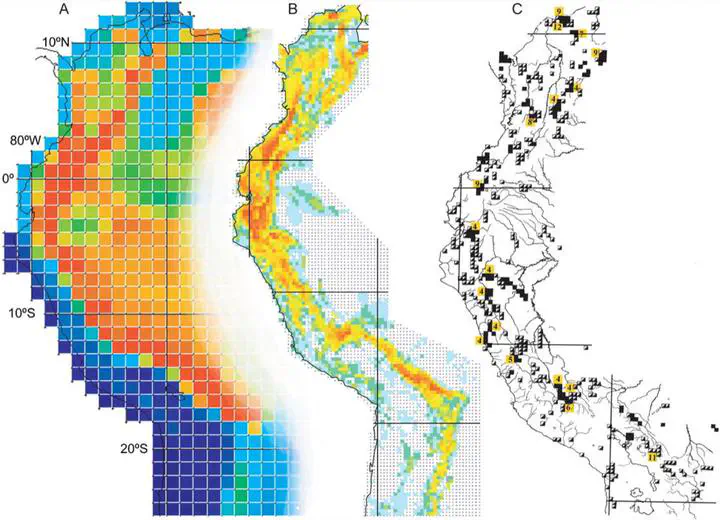Illicit Crops and Armed Conflict as Constraints on Biodiversity Conservation in the Andes Region
 Image credit: Jon Fjeldså
Image credit: Jon Fjeldså
Abstract
Coca, once grown for local consumption in the Andes, is now produced for external markets, often in areas with armed conflict. Internationally financed eradication campaigns force traffickers and growers to constantly relocate, making drug-related activities a principal cause of forest loss. The impact on biodiversity is known only in general terms, and this article presents the first regional analysis to identify areas of special concern, using bird data as proxy. The aim of conserving all species may be significantly constrained in the Santa Marta and Perijá mountains, Darién, some parts of the Central Andes in Colombia, and between the middle Marañón and middle Huallaga valleys in Peru. Solutions to the problem must address the root causes: international drug markets, long-lasting armed conflict, and lack of alternative income for the rural poor.